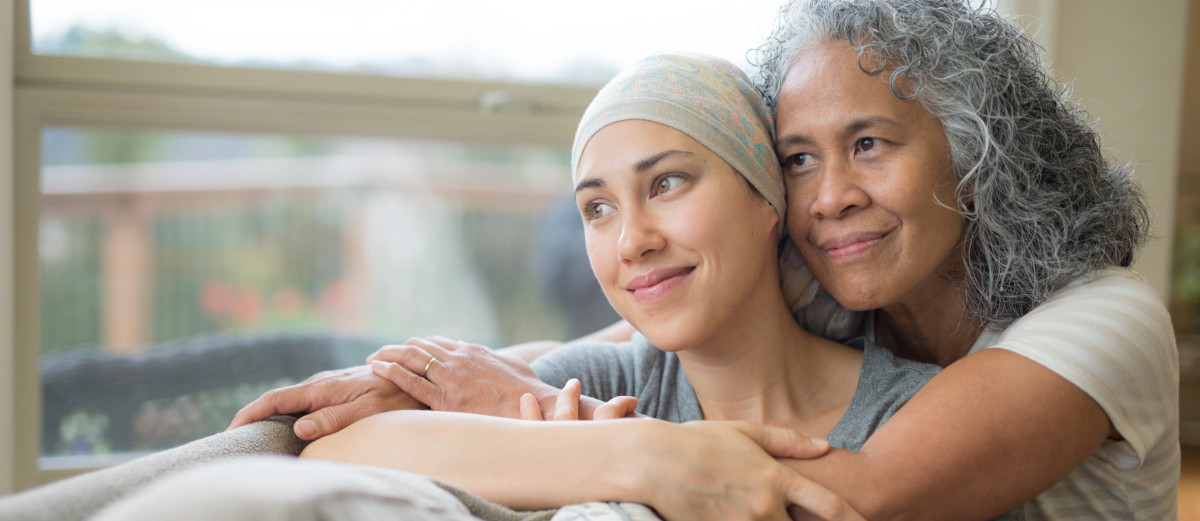Have you ever Googled, “what to do for someone with cancer”?
Have you felt helpless or frustrated when trying to think of something meaningful to offer them or do for them? You want them to know you’re ready to help, but don’t know how to help.
We’re often told to just ask the person what they need. But the truth is, they probably don’t know what they need. And figuring it out can be tough on top of all the new questions that come with their diagnosis.
So now what?
There are lots of ways to show up for someone facing blood cancer—whether you know them personally or not. Big or small, anything you do can make a difference!
The key? Making a patient’s day-to-day experience less overwhelming. Here are five ways to support blood cancer patients.
#1: Help treatment days go smoothly.
If you’re a gift giver, something that helps a patient through treatment can be the perfect choice. Certain items make these days more “comfortable” (as comfortable as they can be), so if you’re trying to think of what to give, think in categories: comfort, hydration, distraction, relaxation, ease, and rest. There are lots of gifts out there that can help with these!
Some examples:
- Comfort: For someone receiving chemotherapy, a pair of fuzzy socks or a soft blanket can help with chills.
- Relaxation: Consider gifting them a subscription to a meditation app to rest their mind.
- Ease: If they take IV medications through a port or a peripherally inserted central catheter (or PICC line), a sweatshirt or shirt that has built-in access can be helpful.
These gestures can help a blood cancer patient feel more prepared and comfortable on a treatment day. And they’re a nice reminder that you’re thinking of them throughout the process!
#2: Take groceries off their plate.
When blood cancer is on the table, figuring out what to eat is sometimes the last thing on a patient’s mind—or their caregiver’s. But you can help lessen that anxiety! If you know a patient or their loved one(s) well enough, try one of these food shortcuts:
- Bring low-effort meals—focus on easily reheated dishes or batch meals like soup or casseroles.
- Start a meal train with family and friends. Working out a schedule and a steady supply of meals, even for a short time, can take stress off both a patient and their caregivers.
- Volunteer to cook for them at home. If they’re up for company, making them a homemade meal in their own space can help them unwind.
If you have the means, you could also take care of grocery shopping for them, or order groceries online and have them delivered. Nutrition plays a key role in how someone feels during and after cancer treatment, so if you’re unsure of what to get, The Leukemia & Lymphoma Society’s (LLS) nutrition information may help.
#3: Be there.
A person experiencing blood cancer often gets a lot of advice—and that can be overwhelming. Our best advice to YOU: Try to avoid doling out suggestions unless they specifically ask. Instead, show up for them, whether they feel like sharing their feelings or not. A blood cancer diagnosis is scary and isolating; they may not always be in the mood to talk, but when they are, having someone truly listen can mean a lot.
It might also be helpful for them to join a community of people who know what they’re going through firsthand. Pointing them to the LLS Community can give them a safe space to express how they’re feeling, ask questions, and get advice from other survivors.
#4: Get involved in the blood cancer community.
Whether you want to help someone you know personally or blood cancer patients in general, you might be feeling like you need more information. Did you know LLS has our very own podcast, The Bloodline? Tune in for everything from research breakthroughs to patient and survivor perspectives.
Also, think about getting involved locally! You can meet other people affected by blood cancer through community events, like LLS’s Light The Night walks, or through a support group that welcomes family and friends as well as patients.
When you make learning about blood cancer a priority, you show the patient(s) you know, the ones you don’t, and their loved ones, that you care about what they’re going through—and that they’re not alone. (It might also help you remember that, if you’re particularly close to a blood cancer patient.)
#5: Bring LLS into the conversation.
While you should avoid putting pressure on someone diagnosed with blood cancer, you could ask them if they’ve reached out to LLS. As the world’s largest nonprofit dedicated to blood cancer, our free and varied resources can be helpful at any point after diagnosis.
Here are just a few places they could get started:
- Speaking to one of our blood cancer Information Specialists, who are highly trained oncology social workers and nurses here to assist patients and caregivers through blood cancer treatment, financial and social challenges and so much more.
- Downloading informational booklets that are relevant to their type of blood cancer or a specific aspect of their experience (like managing side effects or getting support)
- Talking to a peer volunteer who they will be matched with based on factors like diagnosis and age and who can empathize with what they are going through—because they’ve been there themselves
No one should face blood cancer alone. And you can help—whether you’re supporting one patient in your life or getting involved with a community like LLS to support many. We are a united front, and always here for any blood cancer patient, survivor, or their loved ones.
If you want to contribute to our ongoing mission, you can donate here. Every dollar counts.
